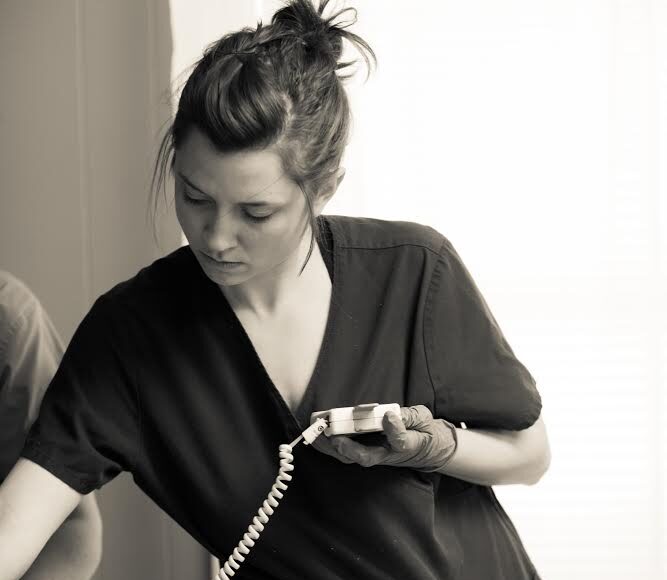Maddox obtained her CPM certification through the North American Registry of Midwives last March and was licensed to practice in the state of Louisiana in August. “It’s going to make homebirth more accessible in Shreveport; however, we need to make homebirths more accessible on a state level,” said Maddox.
She sees change at a state level as being critical. As Vice President of the Louisiana Midwife Association, she encourages local supporters of midwives to join the consumer advocacy group, Louisiana Constitutes for Safe Childbirth (LCSC). “The more involvement we have in LCSC on a consumer level, the more accessible out-of-hospital birth could become in Louisiana,” she said.
Maddox says the midwive’s model of care allows her to treat the mother as a whole, and this involves getting to know a mother’s physical needs as well as her social-emotional needs.
“We cannot forget how deeply birth affects our mind and spirit and how it affects the psychological factors that exist in our lives,” said Maddox. “Labors can become obstructed due to emotional trauma and postpartum healing can become prolonged due to a traumatic birth experience. Women are not baby machines. Women are complex creatures with complex processes and motherhood encompasses every aspect of a woman’s life, not just her body.”
CPMs certainly offer highly personalized care. “Seeing a woman become a mother changes me every time… to be able to assist in that process is more than an honor,” said Maddox.
“Homebirth is not scary,” explained Maddox. “I am trained to recognize emergencies and handle them appropriately. Of the first 80 births that I attended, we transported about eight women. Of those eight, only three were for an emergency. The transfer of care was handled quickly and smoothly and recovery was immediate. When there is a solid plan in place, the mother and baby are safe.”
Maddox is certainly qualified, as she trained for a number of years under midwives in Texas and Washington. She also trained at a high-volume birth clinic in Utah. She describes her education as “hours upon hours of hands-on experience” with “extensive clinics.” She also notes that midwives are trained to administer medication and that they are legally able to carry medication with them to home births.
“Out-of-hospital births can become a reality for most low-risk pregnancies,” said Maddox. In fact, most of the mothers she has served require minimal intervention with the labor process. This fact “amazes” many people, because there is a long-held belief in American culture that birth is a dangerous process, saying, “The first 30 births I attended served to get me out of the mindset that birth is dangerous.”
Maddox also says that midwives do not believe home births are for everyone, “There is a common thought that midwives believe that everyone should use midwives and that every woman should choose out-of-hospital birth. Where and how a woman chooses to birth is a deeply personal matter. What is best for one family may not be for another.”
When I asked her what midwives think about physicians, this midwife wanted to set the record straight, “Midwives are not anti-doctor. We do not hate hospitals. In fact, I love the physicians that take care of my clients so much that I hug them when I see them… their work is so deeply appreciated,” Maddox said. “My scope of practice, and this is important, is low-risk.”
“It is not about having a natural home birth,” Maddox believes. “It is about having a successful birth, one that honors the emergence of a new family, and that process looks different for everyone.”
For More Information about Brittney Maddox’s CPM services, contact her on Facebook (search “Midwife Brittney Maddox”).

